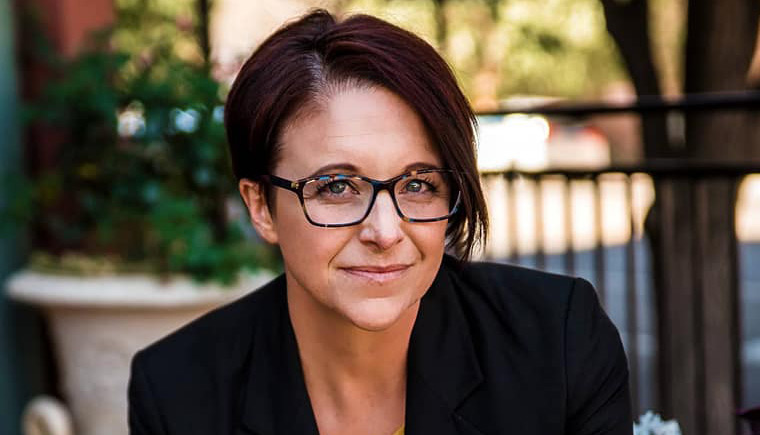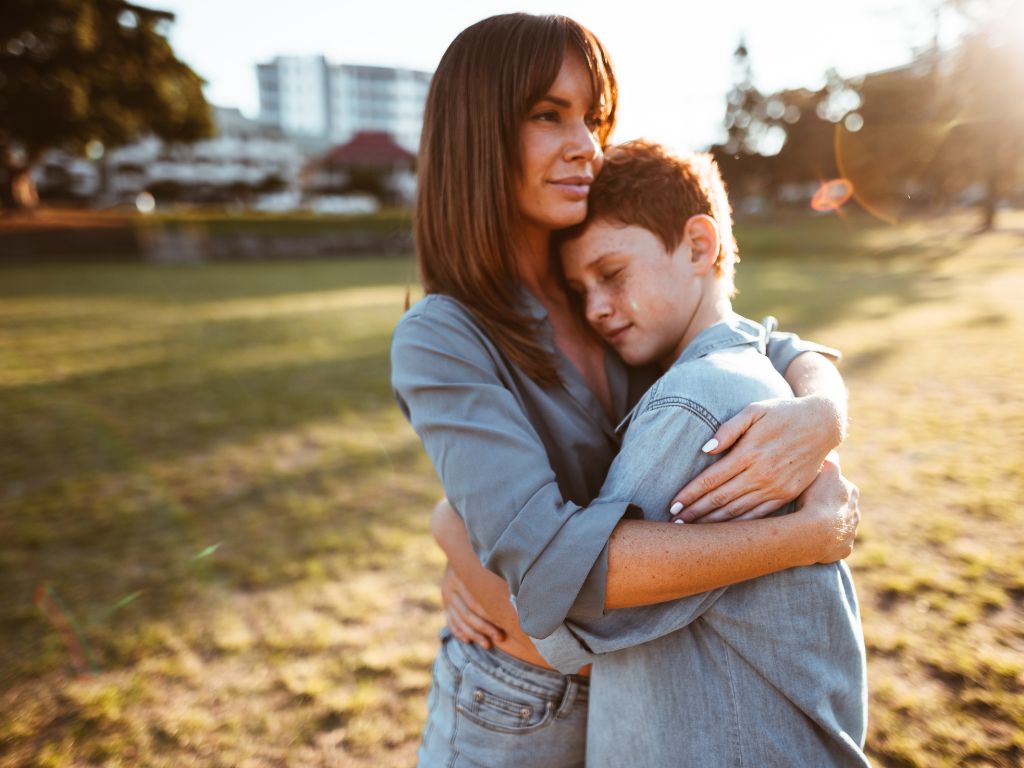Coordinating community through Safe Baby Court Teams

When Anna Neal first heard about the Safe Baby Court Team (SBCT) that the Rocky Mountain Children’s Law Center was planning to launch in Pueblo County – the first program of its kind in Colorado – she was immediately drawn to the program’s approach. Believing the program would be a breakthrough in supporting infants, toddlers and families involved in dependency and neglect cases, Anna felt that the job posting for the SBCT Community Coordinator role was written just for her, and she enthusiastically pursued the role. She knew this was exactly where she needed to be.
Years ago, as a single mother of two children, Anna served as a medic in the Army. When she married her husband, her family of three grew to a family of seven with five kids between them. Five soon became eight after her brother passed away from an opiate addiction and Anna and her husband adopted his three children, her niece and nephews. She saw first-hand the devastation that addiction can have on a family. Now as a social worker, Anna is drawn to the work that she does to help families find their way. “Until you have to watch a family you love deteriorate, you don’t realize the depth of these challenges and what is at stake,” said Anna. “We are all on borrowed time. The Safe Baby Court Team is a chance to see families thrive – to see true improvement that turns lives around.”
Safe Baby Court Teams Approach
Colorado’s SBCT is an initiative of the Rocky Mountain Children’s Law Center in partnership with Zero to Three, a national organization focused on the well-being of infants and toddlers. The Colorado SBCT currently serves families in Pueblo County, with a second site launching in Arapahoe County in the Spring of 2021. The program works to ensure enhanced oversight and collaborative problem solving during a dependency and neglect case, expedited, appropriate and effective services for the family, and trauma-responsive support and continuous quality improvement on each case.
The SBCT approach, developed by Zero to Three and implemented locally in communities across the country, is centered around the well-being of the young child (aged 0-3) and leverages early childhood development science to improve how the courts, child welfare agencies and related child-serving organizations work together to support young children and their families. The focus is on meeting the urgent needs of the infant or toddler, as well as the larger family while minimizing trauma and its impact on the child.
Some of the outcomes the Pueblo SBCT has helped to achieve for families since its start in April 2019 include:
- 86% of infants and toddlers in Safe Baby Court had two or less changes in primary caregivers (placement changes) by federal definition
- 80% of infants and toddlers were reunified with parents; all others (with closed cases) reached permanency with a relative
- The program reduced the wait time for early childhood mental health services from an average of 106 days to an average of 39 days from the time of case opening
In addition to improving outcomes for individual infants, toddlers and families, the SBCT collects and analyzes data on more than 200 measures and reports back to the court, the local child welfare agency and community partners on trends so that the entire team can work to make the system better.
Based on the success of the initial SBCT pilot in Pueblo, in late 2020, the Children’s Law Center doubled its reach in the community by hiring a second community coordinator to work alongside Anna.
Coordinating Community
As the lead community coordinator for the SBCT in Pueblo, Anna works by engaging parents and collaborating with all the parties in a child welfare case as well as the larger community to better help families meet the unique needs of their young children. Community teams that are assembled for each family include more than just the usual members such as GALs, CASAs and caseworkers. They also include everyday citizens and tradespeople such as pest control specialists, pastors and local business leaders who want to be a part of the solution for these infants and toddlers. By coordinating with more than 180 local partner organizations, Anna engages a support system that strengthens families and leads to healthier early childhood development.
“My job is to make all these systems and existing programs work together to serve the family for the good of the child,” said Anna Neal. “The beauty of this work is that we take a whole family, strengths-based approach.”
Anna gets to know the people involved in the lives of each family, including foster parents, biological parents, judicial leadership, caseworkers, service providers and others, and engages them in conversations centered on the experience of the child. Infants and toddlers are often nonverbal and vulnerable due to their young age so Anna ensures the narrative is told through their eyes.
In her role, Anna spends a lot of time coordinating many meetings, service providers and processes in an effort to identify strengths and address gaps for each family. She takes a bird’s eye view of each case to ensure that nothing is slipping through the cracks, facilitating good communication among all the stakeholders and ensuring the approach is driven by evidence-based practices with the supports that best match the child’s needs. Underpinning all this work is the experience of the child.
“We are constantly viewing situations and environments through the child’s lens,” added Anna. “Helping all stakeholders to understand the unique experience of the infant is the most challenging and most rewarding part of my job.”
The Colorado Department of Human Services CO4Kids campaign encourages all Coloradans to strengthen families and communities. If you know of an organization or individual working to strengthen Colorado families and communities that would like to be highlighted, please reach out to Dianna Robinson.
To learn about the signs of child abuse and neglect and for information about how to become a foster or adoptive parent, visit CO4Kids.org. Call 844-CO-4-Kids to report concerns about child abuse and neglect. If a child or teen is in immediate danger, dial 9-1-1.
More Posts







